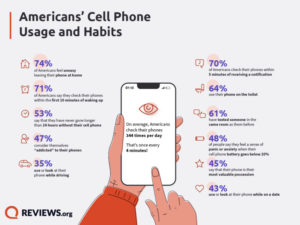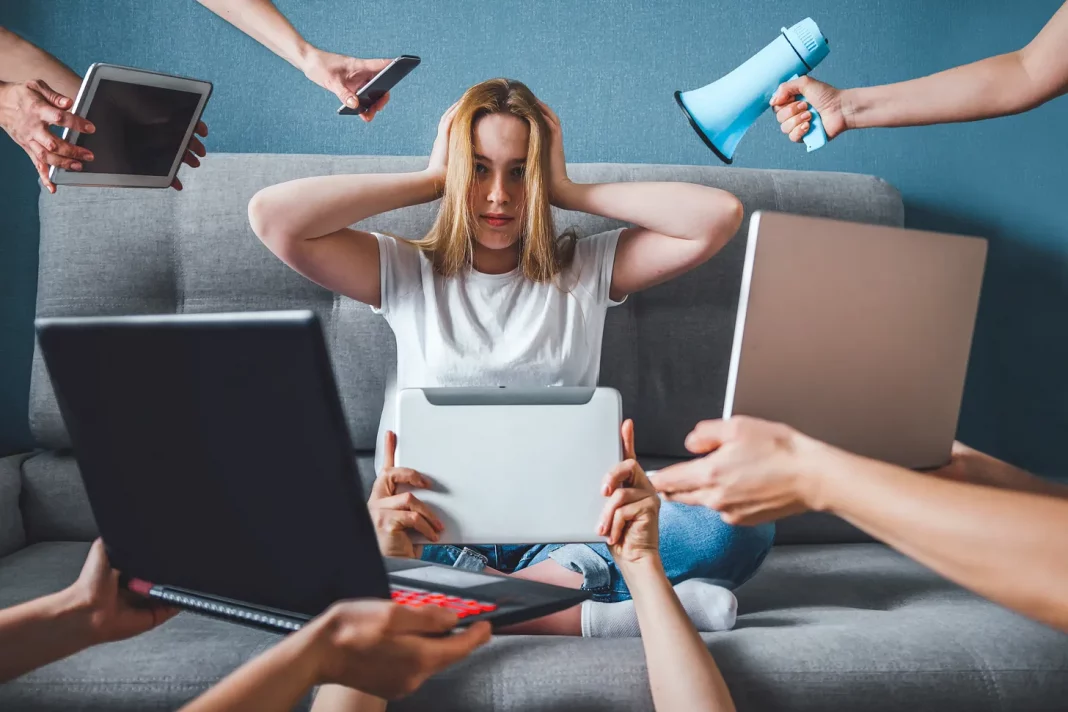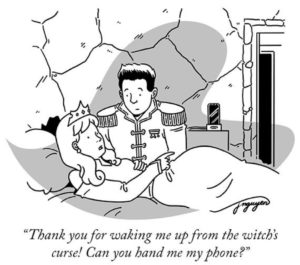How much time do you spend on your phone a day? Be honest. Due to a combination of denial and genuine lack of awareness, most of us significantly underestimate our daily phone use. A survey found that the average guess for screen time was 3 hours and 42 minutes per day with 40 pickups of their phone per day. However, the actual average was 5 hours and 42 minutes with 344 pickups per day and that does not include work-related phone use. So much for wishful thinking…

Source: REVIEWS.org
The reality is that many people’s days consist of eating, sleeping, and screens. Time spent scrolling through our phones in and of itself may not be a problem until we consider what we are not doing because we are scrolling through our phones. In addition to the obvious advantages of unplugging—more creativity, greater productivity, better sleep—your social interactions will also benefit. Alain de Botton famously said:
“The challenge of modern relationships: how to prove more interesting than the other’s smartphone.”
Our relationships are the most reliable contributors to our wellbeing and yet our devotion to our devices is eroding the quality and quantity of our social interactions. Conversations are less fulfilling when we are constantly glancing at our phones. Meals are less enjoyable. Food doesn’t taste as good if our dining partner is distracted by their device. We make less eye contact and feel less connected when our phones are within arm’s reach. When our attention is constantly on our devices, we lose sight of what is around us. Along these lines, here is an eye-opening finding: approximately 1 in 2 Americans (49%) believe they can remember the color of a website better than someone’s eye color.
Time Well Spent
In an ideal world, we would all unplug one day a week. As a result, we would feel like we had more time, we would think more deeply and focus on the things and people that matter most. But if unplugging for a day is not realistic, aim to be less plugged in. Ideally reduce social media use to 30 minutes a day. A study found that this can significantly reduce depression and loneliness.
There is no doubt that when we scroll less, we live more. According to a survey, here are the Top Feelings of Unplugging From Tech:
1. Relaxed 🧘 (54%)
2. Content 😌 (31%)
3. Free 🤗 (29%)
4. Happy 😀 (22%)
5. Present 🙋♀️ (17%)
Nobody has ever said at the end of their life or at the end of the day, “Oh I wish I had spent more time on my device.” Most of us would like to spend less time on our phones but have trouble actually doing it.
Here are 7 practical tips to close the intention-action gap:
1. Get a non-digital hobby
What makes you forget to look at your phone? Do more of that. Carry a book with you. Replace one habit with another. A study found that replacing social media use with physical activity for just 30 minutes will make you happier and reduce stress.
2. Marie Kondo your phone
Delete apps that don’t spark joy. Unfollow accounts that make you question your self-worth. Less visual clutter reduces temptation to scroll.
3. Take control
Disable notifications. Schedule when and where you are going to check email and social media. Set up a docking station in your home where your phone lives. Make sure that your phone is out of reach at night. Use an old fashioned alarm clock to wake you up in the morning.
4. Build in mini daily detoxes
Leave your phone at home when you do not need it—when getting groceries or going to the gym or going for a walk. During the work day, take real breaks, not phone breaks.
5. Use your voice
If you have something to say, say it out loud. Sixty-one percent have texted someone in the same room as them before! If you are not under the same roof, pick up the phone if you want to connect or express gratitude. Better yet, set up a plan for coffee for a face-to-face interaction.
6. Create inviolable family policies
Have a family meeting and come up with guidelines. The golden rule for my family is absolutely no devices at the dinner table. Other options to consider are no device use after 10pm or before pick up or drop off from school. Don’t be a hypocrite. When children see their parents constantly on the phone, it sends a message about priorities. Model the behavior you want to see in them.
7. Prioritize IRL experiences
Make the choice to put your phone away when you are with another person, be it having dinner, driving somewhere, watching a movie, or going for a walk.
I follow a simple rule:
Be Wherever Your Feet Are.
It reminds me to be wherever I am instead of lost in my phone.
Today is the National Day of Unplugging! I am celebrating at the TODAY Show, explaining how our phones are vampires of vitality, and also sharing strategies we can all use to be less plugged in.

I wish you all the best,
Dr. Samantha Boardman







